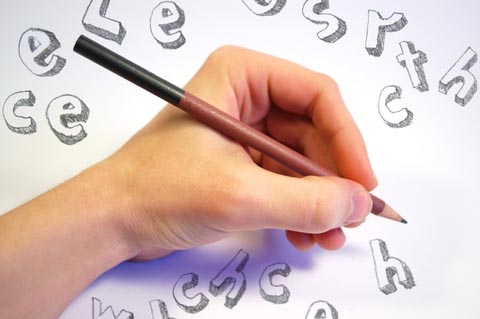Dyslexia – what is it?
The word dyslexia comes from the Greek language,
and its literal translation is ‘dys’ – difficult, ‘lexis’ – words.
Hence difficulty with words.

It is evident therefore that any child or student experiencing such difficulties will have a difficult time in an environment such as school which is book based. School and society value those who acquire a good standard in literary and literacy skills – precisely those skills which dyslexic people find difficult to master.
The British Dyslexia Association defines dyslexia as:
Organising or learning difficulties affecting language, fine co-ordination skills and working memory skills. It is independent of overall ability and conventional teaching. When untreated, there are significant limitations in the development of specific aspects of speech, reading, spelling, writing and sometimes numeracy, which may lead to secondary behavioural problems, although other areas of ability are unaffected.
Dyslexia The Hidden Handicap
Unless a teacher or parent is skilled in the identification of dyslexia, the child may be misdiagnosed and frequently regarded as lazy, forgetful and inattentive, or even slow, thick, or stupid. It is therefore very important that all teachers and parents are informed and experienced enough to identify the dyslexic child early in a school career. The teacher should provide appropriate assessment and teaching, and be able to monitor the child’s progress regularly and carefully.
The Incidence of Dyslexia
Based on government sponsored studies, the British Dyslexia Association estimates that 10% of children have some degree of dyslexia, while about 4% will be affected severely. These figures are also likely to have increased over the past 10 years since the British statistics were obtained. Most will need some specialist support at some time during their school life, but the most severely affected may need such help throughout their education, with support even at college and university.
